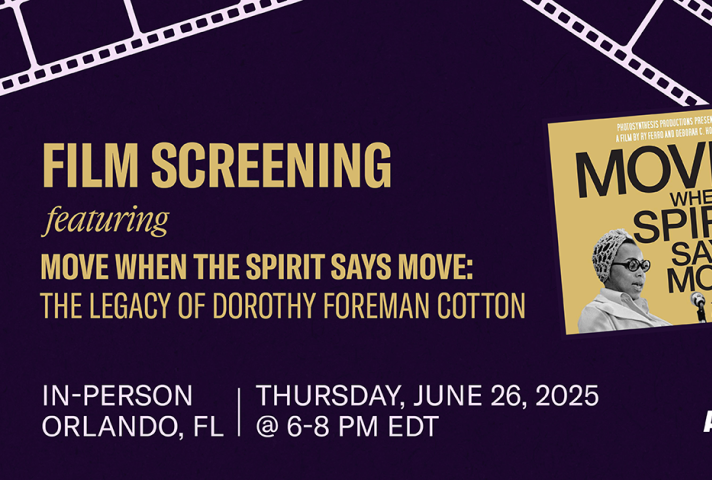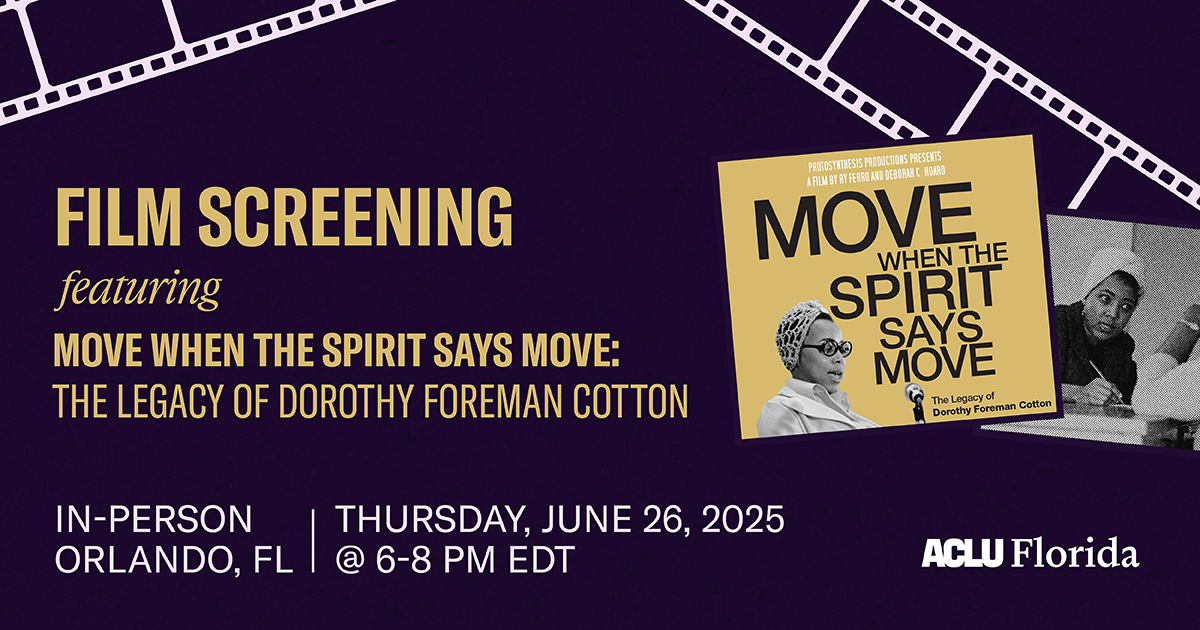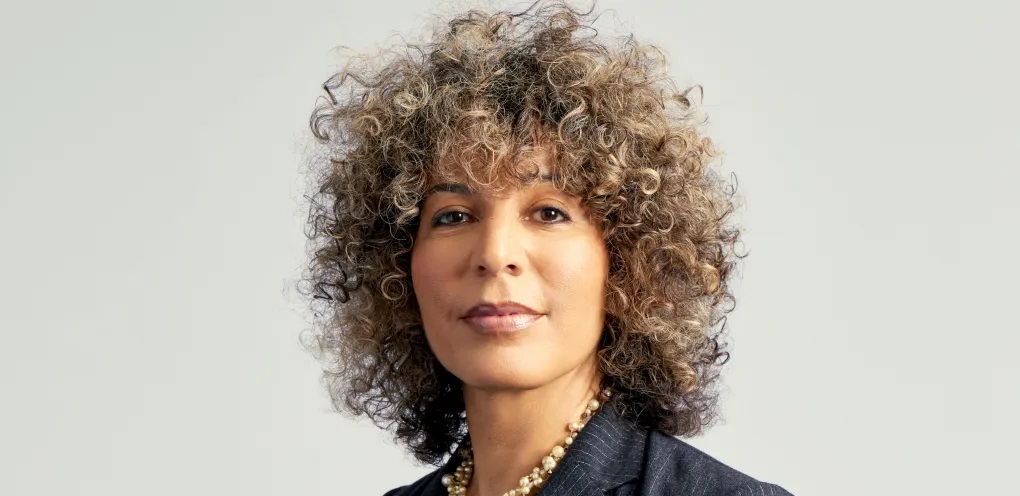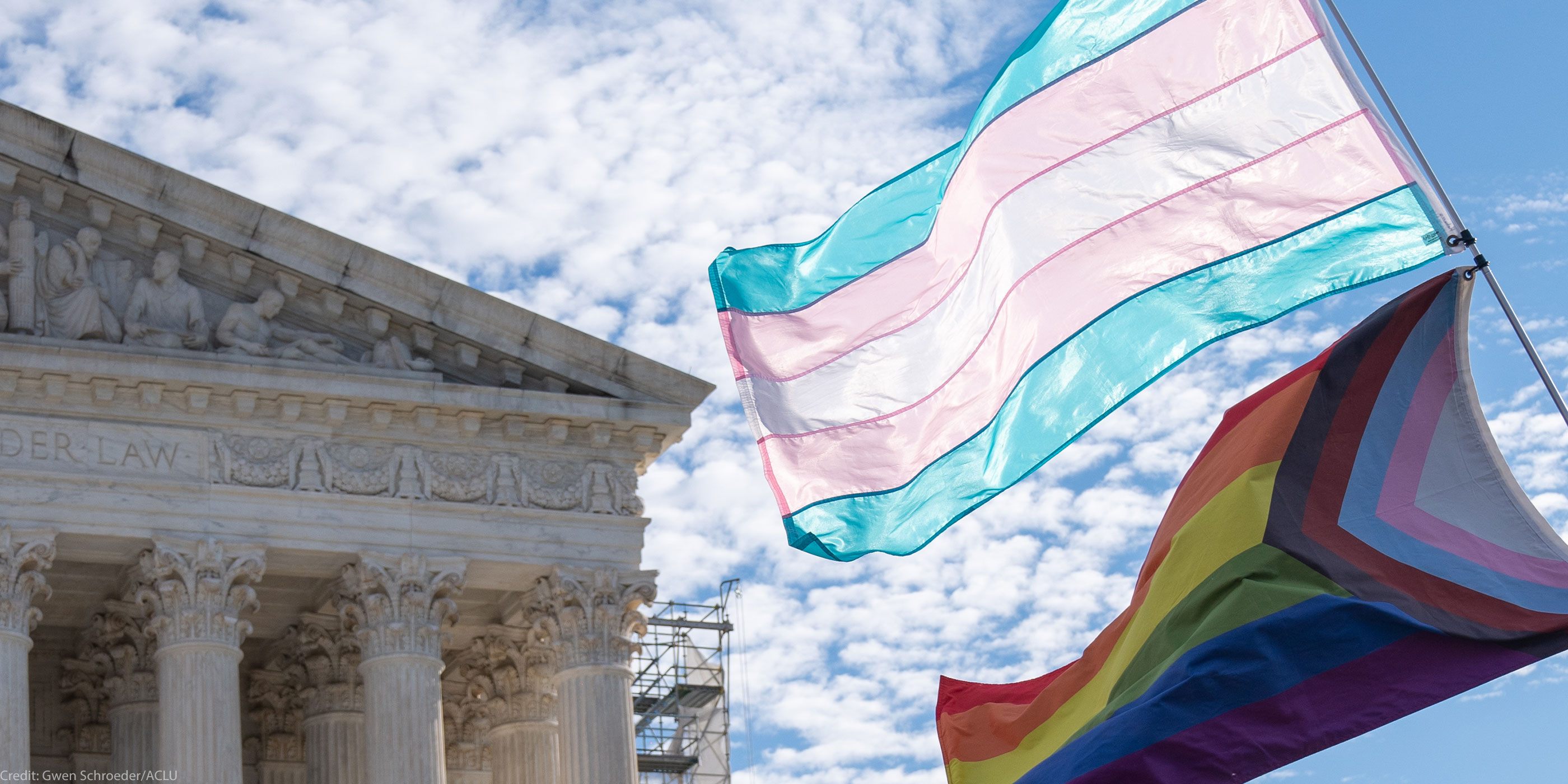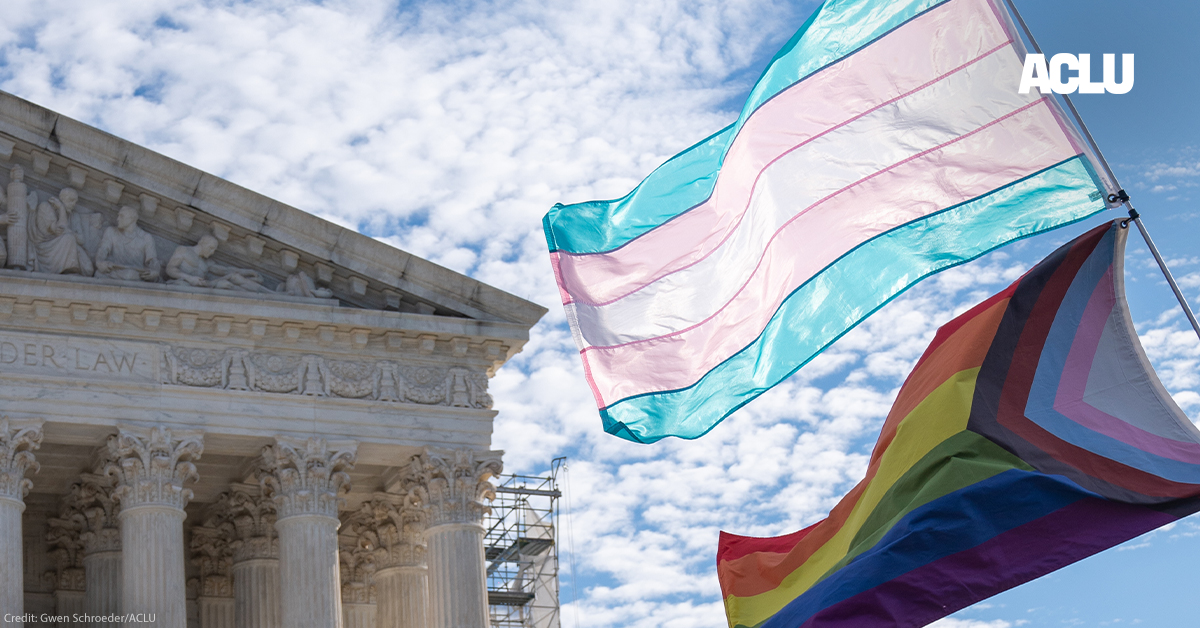This interview is published in Marie Claire France.
Bacardi Jackson, Executive Director of the ACLU of Florida, oversees the organization's strategic direction. Her mission? "To protect, defend, strengthen, and promote the constitutional rights and freedoms of all Floridians." We spoke via Zoom.
Marie Claire : What was your background before leading the ACLU of Florida?
Bacardi Jackson: I grew up in Memphis, Tennessee, a center of the civil rights movement. (Martin Luther King was assassinated there on April 4, 1968, editor's note). The fight for civil liberties is part of my history and who I am.
My father worked with Dr. King, my mother was the main organizer of the protests to stop the Vietnam War. But to clarify, I've lived in Florida for 19 years. I have deep roots there; my oldest son grew up there, and my two younger sons were born there.
Book censorship in the United States is particularly intense in Florida...
Indeed, Florida is leading the wave of censorship sweeping the country. Books banned from our schools and libraries feature LGBTQ+, Black, or brown-skinned historical figures or figures. In short, books from communities other than white and cisgender.
How is censorship implemented?
It only takes one person, even if they are not a parent, to contest the presence of a book in a classroom or school library for it to be immediately removed.
The majority of books censored in Florida are the work of two people who went around schools protesting the books. This is contemptuous, intentional, targeted, and hateful. The fact that two people have this power speaks volumes about how broken the system is.
Among the banned books, which ones were most shocked by their removal?
"The hill we climb" (a poem written by Amanda Gorman after the assault on Congress by Donald Trump supporters on January 6, 2021, and recited by the poet during Joe Biden's inauguration ceremony on January 20, 2021, editor's note). In Florida, 54 math books were banned because they referred to Black mathematicians who worked at NASA, for example.
A member of the Florida government found this offensive, so he banned these books. We are seeing a concerted effort to target and erase the history of certain people. Before working at the ACLU of Florida, I worked at the Southern Poverty Law Center (a foundation that defends minority rights), working on children's rights. We fought against the fact that parents requesting the reinstatement of banned books could not appeal.
But you know, what's happening in Florida right now goes beyond censorship; school curricula are also being changed.
What has changed in school curricula?
For example, AP African American History courses (freshman courses taught in high school, editor's note) have been eliminated in high school. The word "democracy" has been removed from some Civil Rights and Social Studies textbooks. It has been replaced with "Representative Republic" or "Constitutional Republic."
Does book censorship hide a broader political project?
From where I stand, I think many of the answers to this question are in the 2025 Project (an extremist agenda written by the Heritage Foundation for Trump's second term in 2025, editor's note). This agenda, championed by the governor of Florida and implemented by the current president of the United States, is to advance white supremacy and promote Christian nationalism, which is just another term for white supremacy.
The indoctrination that comes through the censorship of books and documents is aimed at not letting girls, LGBTQ people, and Black and brown people know that they have power.
The 2025 Project includes some very insidious things, including the promotion of "marital fertility." Science shows that the more educated girls are, the fewer children they have. The idea behind the 2025 Project is to push girls to get married and have children rather than get an education. The indoctrination, which involves censoring books and materials, aims to keep girls, LGBTQ people, and Black and brown people from knowing they have power. All of this works in concert, as part of the white supremacist agenda.
How do teachers react to this rewriting of history?
They are disoriented, terrified. Many have left. Last year, we started the school year with over 9,000 teaching vacancies. Teachers came to me to say they had been physically threatened. One showed a film in class, about Black history, nothing radical. Four very strong white men came to her to physically threaten her. People are afraid. Our educators are afraid. Our children are afraid.
Last year, my 15-year-old daughter had to read George Orwell's "Animal Farm" over the summer. We were talking about the book, and she looked at me: "Mom, is it illegal to read this book?" Imagine what that means to a child, my child, who is also worried about the trouble her teacher might get into for recommending this classic. (Bacardi Jackson smiles and points to the bookshelf behind his desk.) Look, I only have banned books.
Is Florida, as some activists claim, the laboratory for the policies at work under the Trump administration?
I often call our state the bastion of bad ideas. Florida is the testing ground for repressive ideologies and policies, the model and blueprint for what we see nationally today. I've adopted a mantra: Liberating Florida is liberating the nation. If we can save our democracy here, we'll have a model for doing so nationally, too.
Was there an event in recent history that explains why Florida took this liberticidal path?
The murder of George Floyd by a white police officer on May 25, 2020, was a watershed moment. We witnessed his murder on television. The entire world reacted and became aware of the extent of systemic racism in our system. Young people of all ethnic backgrounds across the country woke up, and the veil was lifted.
DeSantis wants to put our children to sleep first, because he knows that the murder of George Floyd is a generational event.
This realization, I think, scared those who were counting on the continuation of white supremacy in a country where a white majority holds power. Here in Florida, that's when we saw the attacks on the freedom to protest. Then a law literally called Stop Woke was enacted (since declared unconstitutional, editor's note). Stop the wokeness. Stop the awakening of our children and the people who see you. When you want to put a generation of white supremacists in power, you have to focus on the children. DeSantis wants to put our children to sleep first, because he knows that the murder of George Floyd is a generational event.
Where is the resistance?
I'm fighting the exact same battles my parents fought in the 1960s, and in very similar circumstances, where it can cost people their lives. People have left this state after receiving death threats. We lost an ACLU staff member because he didn't feel safe. Basketball player Dwayne Wade left Florida because his family was in danger there. We're at a time where speaking out has real consequences. We really have to ask ourselves if we would have had the courage to march with King.
What role does the ACLU of Florida play in this resistance?
The ACLU has existed for 105 years nationally, and for 60 years in Florida, we've been on the front lines of the resistance. We use every tool at our disposal, launching lawsuits. Our national office has already filed five lawsuits against the Trump administration. Here in Florida, we have countless lawsuits against the DeSantis administration, and we continue to support anyone who has the courage to file one. It's an important part of our work.
We also have field teams and organizers who go out into communities to encourage people to mobilize: in Tallahassee (the state capital), at school board meetings, city council meetings, and county commission meetings. We need to make people understand that they can run for office on these boards and commissions, that they have power. But we're not alone.
Resistance is also about the people who are creating African-American history programs for young people. I just read the story of a teacher who is looking for a way to teach students who no longer come to school, terrified that ICE (Immigration and Customs Enforcement) will come looking for them and deport them. The resistance is there, perhaps not very visible, because some of it must remain invisible. It is waging a fierce fight for our democracy
Bacardi Jackson is an attorney and executive director of the American Civil Liberties Union of Florida. She's a powerful voice in the fight against book censorship in Florida and in defense of democracy.
